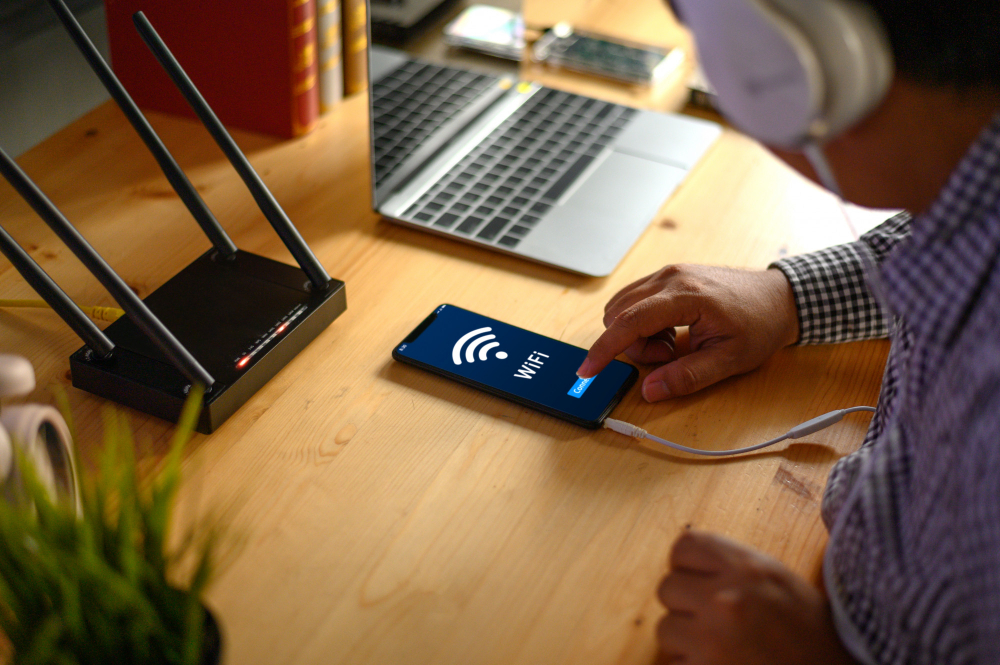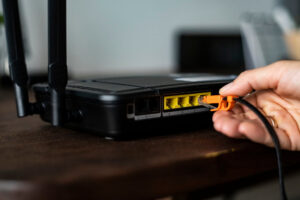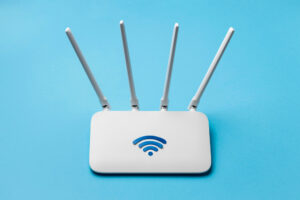A strong Wi-Fi connection is essential for seamless internet access, whether at home or in the office. However, maintaining a reliable Wi-Fi signal in large spaces can be challenging due to physical obstacles, signal interference, and network limitations. If you’re facing connectivity issues, this guide offers effective strategies to boost your Wi-Fi signal in expansive areas.
Why Wi-Fi Signals Struggle in Large Spaces
Before diving into solutions, it’s crucial to understand why Wi-Fi signals weaken in larger homes and offices:
- Physical Barriers: Walls, floors, and furniture can obstruct signals, reducing their strength.
- Distance from Router: Wi-Fi signals weaken as the distance from the router increases.
- Interference: Other electronic devices, such as microwaves and cordless phones, can interfere with your Wi-Fi.
- Overloaded Network: Too many connected devices can lead to network congestion, especially during peak usage hours.
Top Strategies to Boost Wi-Fi Signal
1. Optimize Router Placement
The placement of your router significantly impacts the Wi-Fi signal strength.
- Solution:
- Place the router in a central, elevated location.
- Avoid areas with thick walls, metal surfaces, or large electronic devices.
- Keep the router away from windows and corners for better signal distribution.
2. Upgrade to a Modern Router
Older routers may not support high-speed internet or modern Wi-Fi standards.
- Solution:
- Invest in a router that supports Wi-Fi 6 or Wi-Fi 6E for better range and speed.
- Choose a dual-band or tri-band router to minimize interference and improve performance.
3. Use Wi-Fi Extenders or Repeaters
Wi-Fi extenders amplify signals to cover areas with poor connectivity.
- Solution:
- Place the extender halfway between the router and the dead zone.
- Ensure the extender is compatible with your router for seamless integration.
4. Consider a Mesh Wi-Fi System
Mesh systems provide blanket coverage across large spaces.
- Solution:
- Install multiple nodes throughout your home or office.
- Opt for systems designed for large spaces, such as Google Nest Wi-Fi or Netgear Orbi.
5. Switch to 5 GHz Band for Less Interference
The 5 GHz band offers faster speeds and less congestion than 2.4 GHz.
- Solution:
- Connect devices close to the router to the 5 GHz band.
- Use the 2.4 GHz band for devices farther away, as it has a longer range.
6. Eliminate Signal Interference
Minimize the impact of other electronic devices on your Wi-Fi signal.
- Solution:
- Keep devices like microwaves, cordless phones, and baby monitors away from the router.
- Use shielded cables to reduce electromagnetic interference.
7. Use a Wired Connection for Key Devices
For devices that require stable and fast connections, Ethernet cables are ideal.
- Solution:
- Connect gaming consoles, desktops, or streaming devices directly to the router.
- Use Powerline adapters to extend wired connections to distant rooms.
8. Adjust Router Settings
Tweaking your router settings can improve signal performance.
- Solution:
- Change the Wi-Fi channel to avoid interference from neighboring networks.
- Enable Quality of Service (QoS) settings to prioritize critical devices or applications.
- Ensure your router’s firmware is updated for optimal performance.
9. Limit Connected Devices
Too many connected devices can overload the network.
- Solution:
- Disconnect devices that aren’t actively using the internet.
- Use guest networks for visitors to reduce strain on the main network.
10. Invest in Wi-Fi Antennas or Signal Boosters
External antennas and boosters enhance signal strength.
- Solution:
- Replace your router’s antenna with a high-gain version.
- Use signal boosters to amplify coverage in hard-to-reach areas.
11. Create a Wired Backhaul for Mesh Systems
A wired backhaul ensures consistent performance for mesh Wi-Fi systems.
- Solution:
- Use Ethernet cables to connect mesh nodes, improving speed and reliability.
12. Monitor Network Usage with Apps
Network monitoring tools can help identify and address issues.
- Solution:
- Use apps like NetSpot or Wi-Fi Analyzer to check signal strength and coverage.
- Identify bandwidth-hogging devices and applications.
13. Schedule Internet-Heavy Activities
Avoid network congestion during peak hours by scheduling bandwidth-intensive tasks.
- Solution:
- Schedule large downloads or backups during off-peak hours.
- Use cloud services for automatic backups outside of busy times.
Tailored Solutions for Homes and Offices
In Large Homes
- Challenge: Multiple floors, thick walls, and larger distances between devices.
- Solution:
- Use a combination of mesh systems and Wi-Fi extenders.
- Opt for smart home devices that support advanced Wi-Fi standards.
In Offices
- Challenge: High device density, larger open spaces, and increased interference.
- Solution:
- Deploy enterprise-grade access points for better performance.
- Use VLANs to segment traffic and improve security.
Preventing Future Wi-Fi Issues
- Regular Maintenance: Reboot your router periodically to clear temporary glitches.
- Stay Updated: Keep your router’s firmware and devices’ software updated.
- Plan for Growth: Anticipate future needs and upgrade your network capacity accordingly.
When to Seek Professional Help
If your Wi-Fi issues persist despite trying these solutions, consider consulting a network professional. They can:
- Conduct a site survey to identify dead zones.
- Recommend and install advanced networking equipment.
- Ensure optimal configuration for your specific space and needs.
Conclusion
Boosting Wi-Fi signals in large homes and offices requires a combination of strategic placement, modern hardware, and effective network management. By implementing the solutions outlined above, you can ensure strong, reliable internet connectivity throughout your space. With a robust network, you’ll enjoy seamless streaming, gaming, and productivity, no matter where you are.







